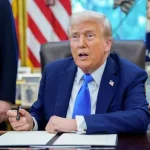The Tier 1 system has taken a turn around, with the Investor and Entrepreneur visas being gradually replaced by the Innovator and Start-up visas. Although the Investor visa has not closed, there are changes that have been implemented. As for the Tier 1 Entrepreneur visa, the extensions for current applicants are still open until 5 April 2023 and settlement applications until 5 April 2025.
Below are the two new visa outlines and requirements for those who wish to invest and build a business in the UK. These new visas officially opened with effect from 29 March 2019. The new system also comes with a lot of new rules, which are set out in ‘Immigration Rules Appendix W’ on the government website www.gov.uk outlining each different requirement that the applicant will have to meet.
Innovator visa
Applicants should first show that they intend to set up or run a business in the UK, which they then need to have endorsed by an approved body. This includes demonstrating that the business plan is viable. Other applicants already in the UK can also extend or switch their current visa to the Innovator visa. Individuals can apply if they are from outside the European Economic Area and Switzerland.
In order to see if applicants are eligible, they should:
- Pass the English language test – unless from one of the countries that the government exempts from the language clause
- Be at least 18 years of age
- Prove that they have enough personal savings to sustain themselves during their stay in the UK.
Applicants must have at least £50,000 in investment funds to be able to apply to the Innovator visa and the funding can come from any source providing that it is legally obtained. If investors wish to team up with other individuals, this is allowed, but each innovator applicant would have to show an investment fund of £50,000 in their own individual bank account.
However, if the individual already has a business established in the UK and it is already endorsed from an earlier visa, then there would be no need for a further investment fund.
Furthermore, the applicant must have at least £945 in their bank for at least 90 consecutive days before applying for the visa. They cannot use the money from their investment fund or any money that they obtain through illegal employment in the UK to support them. If the applicant has dependants, then they will also have to show that they also have savings of £630 per dependant for 90 consecutive days. These can either be in the dependants’ own accounts or the main applicant’s account. Therefore if the applicant has two dependants, he or she should have a total of £2,205 in their account for the previous 90 days.
Usually when applying on the standard service system, the decision can take three to eight weeks depending on the circumstances of the application.
If, however, the application is made on a super priority service, then applicants can get a decision within one working day from when they submit the documents, unless there are complications causing delay such as:
- Call for verification of the supporting documents
- Call for an interview for the application
- Any personal circumstances causing delay, such as criminal records etc.
Application costs
The application should be made no earlier than 3 (three) months before the travel date.
The costs of the applications are as shown in the table below:

Furthermore, there are no limitations on the number of times an applicant can extend their visa, thus after every three years the visas can be extended. However, visas may be cut short if the endorsement is withdrawn. Therefore, whenever applying to renew visa they must apply with re-endorsement.
Along with the eligibility there are guidelines as to what individuals can and cannot do:
Can:
- Start a business or several businesses
- Work for your business
- Employ people.
Cannot:
- Work outside of your business
- Work as a doctor or a dentist in training
- Work as a professional sportsperson, including being a coach
- Get public funds.
Supporting documents, applicants must provide:
- Current passport – valid identification/ travel document
- Bank statements to prove savings
- Proof of language
- Evidence of investment funds
- Tuberculosis tests.
There are more requirements that applicants need to meet (see Appendix W) before submitting their application, and should therefore consider legal assistance.
This application is typically made online, however under certain circumstances, e.g. if applying from North Korea, applicants would have to be sent by post.
The applicants can stay in the UK until they get their decisions, if already in the UK.
For further information, go to www.gov.uk/innovator-visa
Start-up visa
The Start-up visa differs from the Innovator visa in many aspects, however the principle requirements remain the same. The Start-up visa is to some extent an expanded alternative to the Graduate Entrepreneur application. The Tier 1 Graduate Entrepreneur programme will be closed to new applicants from 6 July 2019, but people can continue to apply for the Graduate Entrepreneur visa until 5 July 2019.
An authorised body must endorse the applicant; this can be from a UK Higher Education Institution or a business organisation with a history of supporting UK entrepreneurs.
In order to see if applicants are eligible, they should: –
- Pass the English language test – unless from one of the countries that the government exempts from the language clause
- Be 18 years of age – minimum
- Prove that they have enough personal savings to sustain themselves during their stay in the UK.
Application costs
The application should be made no earlier than 3 (three) months before the travel date.
The costs of the applications are as shown in the table below:
Those applying under the Start-up visa, if accepted, they can stay in the UK for 2 years, however unlike the Innovator visa, they cannot extend their visa and they cannot apply for settlement. Although, applicants’ visas may be cut short if the endorsement is withdrawn. They will have to apply with a new endorsement before the current visa expires.
If applicants wish to further grow their business and to settle in the UK, after the 2 years period of their Start-up visa, they will then have to switch over to the Innovator visa. Once they have been on the Innovator visa for the three years timeframe, they can then apply for settlement in the UK.
Along with the eligibility there are guidelines as to what individuals can and cannot do:
Can:
- bring family members
- switch to this visa from other visa categories
- work in another job as well as working for your business.
Cannot:
- get public funds
- work as a doctor or a dentist in training
- work as a professional sportsperson, including being a coach
- settle in the UK on this visa.
Supporting documents, applicants must provide:
- Current passport / valid identification/ travel document.
- Bank statements to prove saving
- Proof of language
- Evidence of investment funds
- Tuberculosis tests.
As with the Innovator visa, there are more requirements that applicants need to meet (see Appendix W) before submitting their application.
This application is typically made online, however under certain circumstance, e.g. if applying from North Korea, applicants would have to send through post.
For further information, go to www.gov.uk/start-up-visa
Tier 2
The Tier 2 visa had undergone recent changes in June 2018 in regard to the requirements that people need to comply with to be able to enter the UK. The changes for Tier 1 and Tier 2 were announced on 7 March 2019, with the changes for Tier 1 as noted above being implemented from 29 March 2019. The controversial Brexit payment exemption for Tier 2 will be extended for the NHS and schools, so that they can continue to appeal to and hire experienced teachers, nurses and paramedics.
If we have a look at the amendments and the future prospects of them, they provide more opportunities for those skilled workers worldwide and in particular those pursuing their career in the UK within the fields of Healthcare (the NHS) and Education – especially now that the number of professions from the exemption threshold of £30,000 has increased. Non-EEA (European Economic Area) workers in these professions will only need to meet the lower minimum salary of £20,800. However, non-exempt professions are still subject to a higher threshold of £30,000 minimum income requirement, as per the Standard Occupational Classification (SoC).
The process of the revision post-Brexit will potentially include reducing the qualification level for applicants, therefore they will only need an A level/RQF 3 (equivalent) or above to be eligible. Furthermore, the restrictions upon the number of entries will be abolished; therefore there will be no limitations on the number of qualified people coming into the UK. There will be steps to look into the changes for skilled workers, along with the potential for agricultural workers.
Additionally, the government has announced a two-year exchange scheme, whereby they will allow 20 nurses from Jamaica to enter the UK on Tier 5 Government Authorised Exchange (GAE) visas. They will be allocated to work at the Leeds Teaching Hospitals NHS Trust after initial training in Jamaica, in order to gain valuable experience to take back to the Jamaican healthcare system. This is seen by Immigration Minister Caroline Nokes as: “a fantastic opportunity for future collaboration between the UK and Jamaica.”
The Home Office amendments and revision of prices for visa applications came into effect on 29 March 2019 and there are currently no price changes to the applications for Tier 2. With Brexit still pending potentially until 31 October 2019 or even later, there are many requirements in the Tier 2 application that will almost certainly be revised, depending on the final outcome.
Watch this space for further news.





